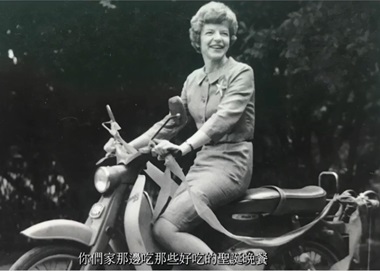 Susan Martens Kehler is warmly remembered by Taiwanese nurses and professors she trained many decades ago, during her many years at Mennonite Christian Hospital Nursing School in Taiwan.
Susan Martens Kehler is warmly remembered by Taiwanese nurses and professors she trained many decades ago, during her many years at Mennonite Christian Hospital Nursing School in Taiwan.
And following her death April 9, a video from them has been posted in her memory.
Mennonite Church British Columbia has also written an appreciation of her life. I will began with some of it, then conclude with a few comments of my own.
Faithful saint and dear sister in Christ, Susan Martens Kehler (Emmanuel Mennonite Church), has passed into the presence of our Lord and Saviour April 9, 2025, at the age of 97.
-
- From Sue’s book, Journey of Many Steps: A History of Mennonite Christian Hospital Nursing School, published in 2002 by Mennonite Christian Hospital, Hualien, Taiwan:
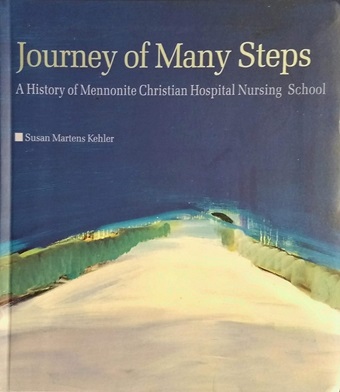 In 1947, Dr. and Mrs. Hess, workers who had to leave Kaifeng, mainland China came to the Hualien area in Taiwan, where there was a need for the treatment of many diseases and conditions that were caused by poverty and poor hygiene and health concepts, particularly among the aboriginal people who lived in the high hills.
In 1947, Dr. and Mrs. Hess, workers who had to leave Kaifeng, mainland China came to the Hualien area in Taiwan, where there was a need for the treatment of many diseases and conditions that were caused by poverty and poor hygiene and health concepts, particularly among the aboriginal people who lived in the high hills.
Dr. and Mrs. Hess started a small clinic and sent mobile clinics to nearby villages. Mennonite Christian Hospital opened in 1954 and continued the mobile clinics.
In October 1957, Susan Martens (Kehler) was recruited to go to Taiwan for the purpose of establishing a nursing school. She studied Mandarin for two years while researching nursing school curriculums. Not finding much available in Taiwan, she gradually developed a three year curriculum and lecture notes for each course.
Mennonite Nursing School recruited students primarily from the aboriginal tribes and tried to get representation from as many different language groups and customs as possible. They remained unregistered for many years, but became known for the quality nursing care they taught.
Sue served in Taiwan for 34 years. Mennonite Nursing School ultimately trained 200 local nurses, most of whom were local aboriginal girls.
- Shirley Hsu (Peace Mennonite Church, Richmond):
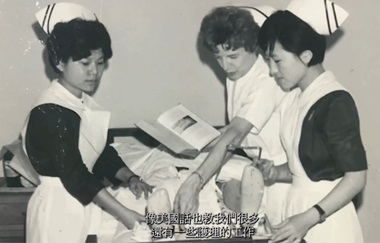 I came to Hualien to teach children of missionary parents from 1962 – 1965. Sue was my first mentor, and I remember her taking me to church and around town on her scooter. Sue was very active physically and mentally. She was literally running the show.
I came to Hualien to teach children of missionary parents from 1962 – 1965. Sue was my first mentor, and I remember her taking me to church and around town on her scooter. Sue was very active physically and mentally. She was literally running the show.
The hospital was first started as a mobile clinic to minister to the mountain people because they were historically pushed into the mountains by the Taiwanese. It was a very long way for them to come to hospitals in town, and their medical care had been neglected.
When the Mennonites first went there, we conducted mobile clinics out in the mountains and we would bring food like canned meat, and of course, a nurse and a doctor.
Sue was around 52 years old when she married Peter, whose wife had passed away. They came back to Canada to get married. Sue and Peter also spent one and a half years serving in Ukraine.
Shirley Hsu added, “One could go on and on about Sue’s Taiwan career, and she didn’t stop when she retired back to Canada. There were further nursing studies, and the development of nursing school curriculum for a BC college.”
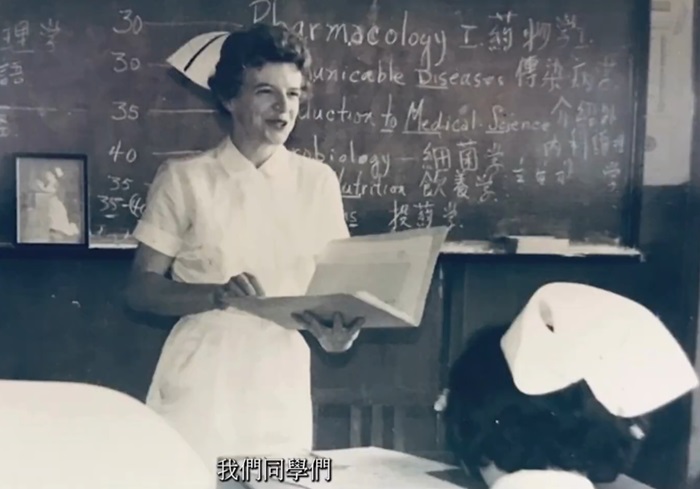
- Carol Ni (White Rock Mennonite Church):
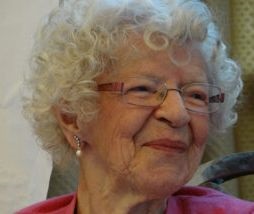
Susan Martens Kehler
In the early years of White Rock Mennonite Church, around 1998 and the following seven to eight years, she and Pastor Peter Kehler helped us tremendously.
Though they had already retired and were in their seventies, they still travelled every week from Abbotsford to White Rock to support our ESL classes, children’s Sunday school and Sunday sermons.
She was like a mother and grandmother to many of us. Having the chance to know Sue was truly a gift and blessing from God. Through her, we witnessed the life of a faithful servant who loved God and loved others. Our church was deeply influenced by both her and Peter’s ministry.
Go here for the full memorial.
Sue Kehler’s memorial service will be held at Emmanuel Mennonite Church May 12, 11 am. All are welcome.
Mennonite Christian Hospital
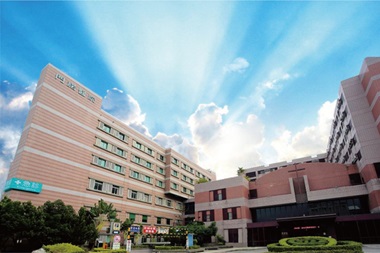
Mennonite Christian Hospital now has 500 beds and 890 employees.
Mennonite Christian Hospital (MCH) is still going strong, and Susan Martens Kehler’s role is commemorated there.
This is the current Introduction to MCH, on its site:
The Mennonite Christian Hospital (MCH) is located at the North East Coast of Taiwan, which was established in 1947 by a group of medical missionaries from Mennonite Churches in the USA and Canada.
The medical missionary work was initiated at aboriginal tribes in East Taiwan and later on, the service has expanded to all people.
Currently, the hospital is a 500-bed regional teaching facility. The services are including Internal medicine, Cardiology/Cardiac lab, Nephrology/Dialysis, General Surgery, Urological Surgery, Orthopedics, ENT, Neurosurgery, Radiation Oncology, Obstetrics/Gynecology, Pediatrics, Rehabilitation, Ophthalmology, Dermatology, Cardiac Surgery as well as Psychiatrics, etc.
We have 890 employees, which consists of 70 medical staff, 385 nursing staff, 115 medical technologists, as well as 150 administrative personnel.
Our vision is to render the excellent medical service to the community through our medical missionary work. We emphasize the medical and gospel service as a whole to build the whole human body-soul-spirit ministry.
Besides the general medical care at the hospital, we have provided social services to the aboriginal, the indigent and the poor. We have developed 200-bed medical facility for psychiatric patients and senile citizens in the vicinity, which has been opened since December 2009.
Kevin Barkowsky, Church Engagement Minister for Mennonite Church BC, posted on Facebook April 11:
Mennonite Christian Hospital in Taiwan named its nursing department the “Susan Kehler Nursing Center.” Her spirit and devotion are still deeply remembered and cherished by the medical community and the public in Hualien.
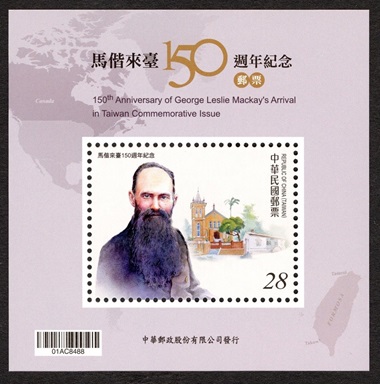 Kehler referred in her book to an affiliation with the Mackay School of Nursing in 1972. The Mackay name is resonant in Taiwan, as I have noted in a couple of earlier articles:
Kehler referred in her book to an affiliation with the Mackay School of Nursing in 1972. The Mackay name is resonant in Taiwan, as I have noted in a couple of earlier articles:
Vancouver Taiwanese Presbyterian Church is spearheading an effort [in 2020] to have pioneering missionary George Leslie Mackay commemorated on a Canadian stamp. . . .
A Change.org petition directed at Canada Post makes the case for commemoration:
‘Mackay of Formosa’ was the most famous missionary of his generation, noted for his unusual yet successful methods. He established the first hospital, first modern school, first school for women and first museum in Taiwan. He is remembered there in school textbooks, on a 2001 stamp, in statues, a museum, commemorative days and Mackay Memorial Hospital. . . .
Canada did not release such a stamp, but Taiwan did, again, in 2022.
Nurses overlooked
Local scholar Sonya Grypma has led the way in bringing attention to the amazing work of the many missionary nurses who worked selflessly, and often with very little notice, in China.
For example, UBC Press wrote of Healing Henan: Canadian Nurses at the North China Mission, 1888 – 1947, which it published in 2008: “While volumes have been written about the Protestant missionary movement in China, scant attention has been paid to the role of nursing and nurses in these missions.” An accompanying quote by Canadian mission scholar Alvyn Austin stated that Grypma had achieved that goal with her book.
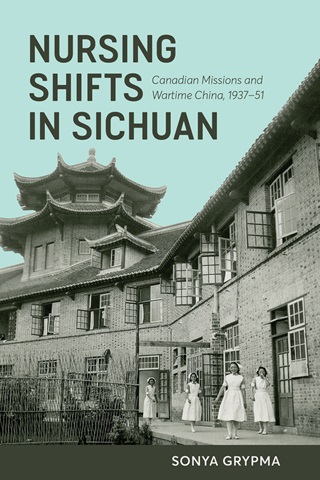 She also wrote Nursing Shifts in Sichuan: Canadian Missions and Wartime China, 1937 – 1951 (UBC Press, 2021).
She also wrote Nursing Shifts in Sichuan: Canadian Missions and Wartime China, 1937 – 1951 (UBC Press, 2021).
Grypma, who was president of the Canadian Association for Schools of Nursing (CASN), and (at the time) Vice Provost, Leadership & Graduate Studies and Dean of GLOBAL at Trinity Western University, was quoted in a November 16, 2020 article on the Canadian Nurse site as saying that she relied on several sources of strength as she faced the pandemic.
She drew on her academic expertise:
As a historian of nursing, Grypma is fascinated by the disconnect between the early public image of nursing and nursing practice as it has played out in reality.
“The nurses in China whose lives I’ve studied and written about for 20 years were no wilting violets,” says Grypma. “Indeed, researching my most recent book . . . introduced me to nursing leaders who were demure and feisty in equal measure.”
“When it came to protecting patients or nursing students, they could, and literally did, stare down the enemy,” she says, referencing one example of Vera Nieh (Nie Yuchan), dean of nursing at Rockefeller-funded Peking Union Medical College in Beijing, who, in 1941, convinced Japanese soldiers who were raiding her campus to wait quietly in the hallway for two hours while her nursing students completed their national exams for professional qualification.
Grypma, while Dean of TWU’s School of Nursing, welcomed Kehler (“who has an inspiring history to share”) to a Nursing Network Cafe in 2015. Grypma offered “a commentary on the relevance of nursing history to the nursing profession of today.”
Medical missions in China
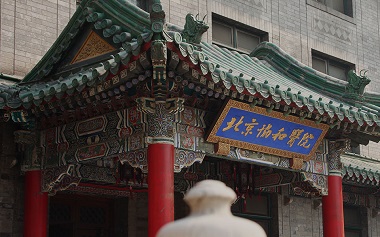
Peking Union Medical College is China’s top medical school and played a key role in fighting COVID-19.
As noted above, the missionaries who initiated Mennonite Christian Hospital had already been working in China. There is a rich history of medical missions in China, some of which I’ve touched on in earlier articles:
For example:
- China’s top coronavirus-fighting hospitals have missionary roots
- Founder of International China Concern looks back on first 25 years
- Peter Foggin: Born in China, his love for Asia has remained strong
Other articles have looked more generally at missions; the first one even features a woman raised in Vancouver:
- Pioneer missionaries are honoured where they devoted their lives in China
- Chinese human rights writer inspired by ‘heroic Christians’
- Eric Liddell, Olympic gold medalist and missionary to China
- OMF celebrating 150 years; Chinese Missions Conference launching
- Christianity: a missionary religion, Part IV: Asia
- Christianity: a missionary religion, Part IX: Asia
April Yamasaki posted An Encouragement to Me and to Many May 13, based on her tribute to Sue Martens Kehler at Emmanuel Church the day before.
